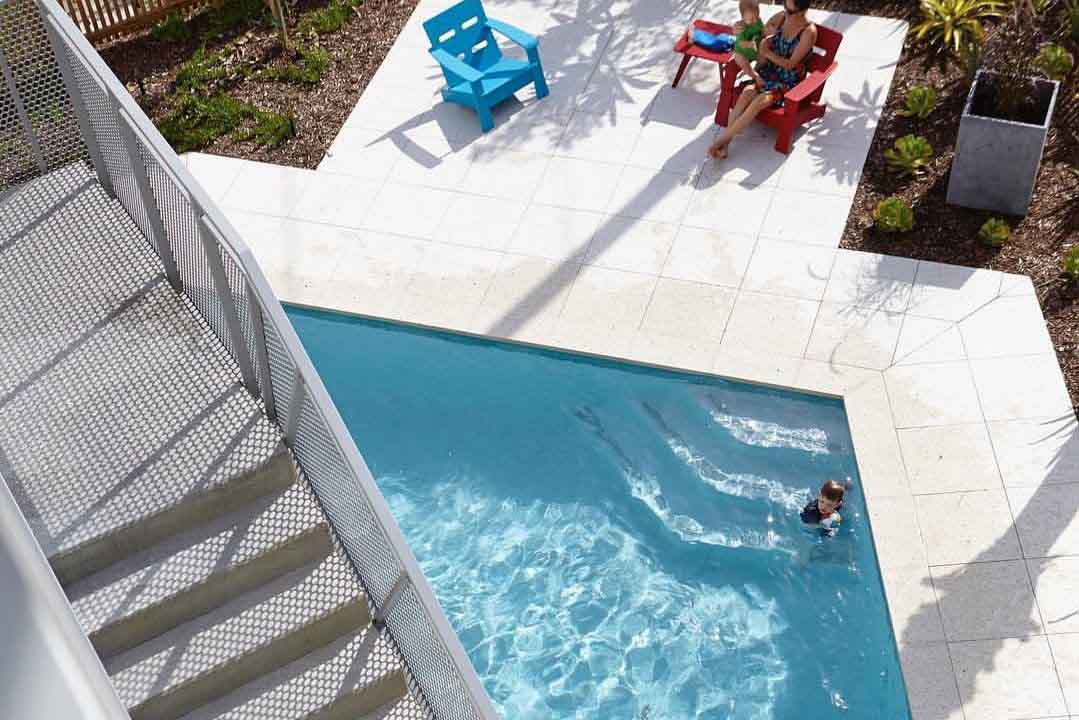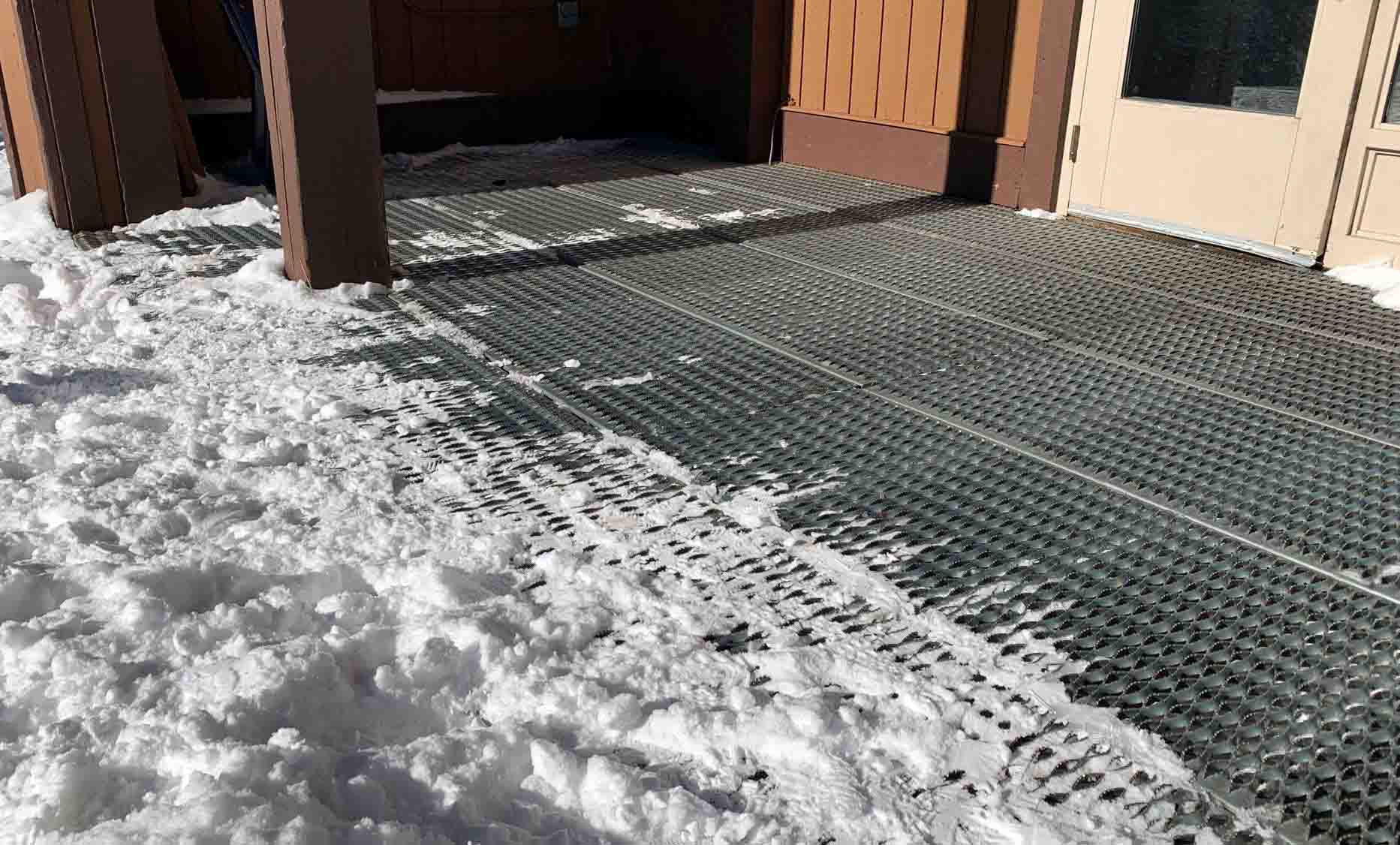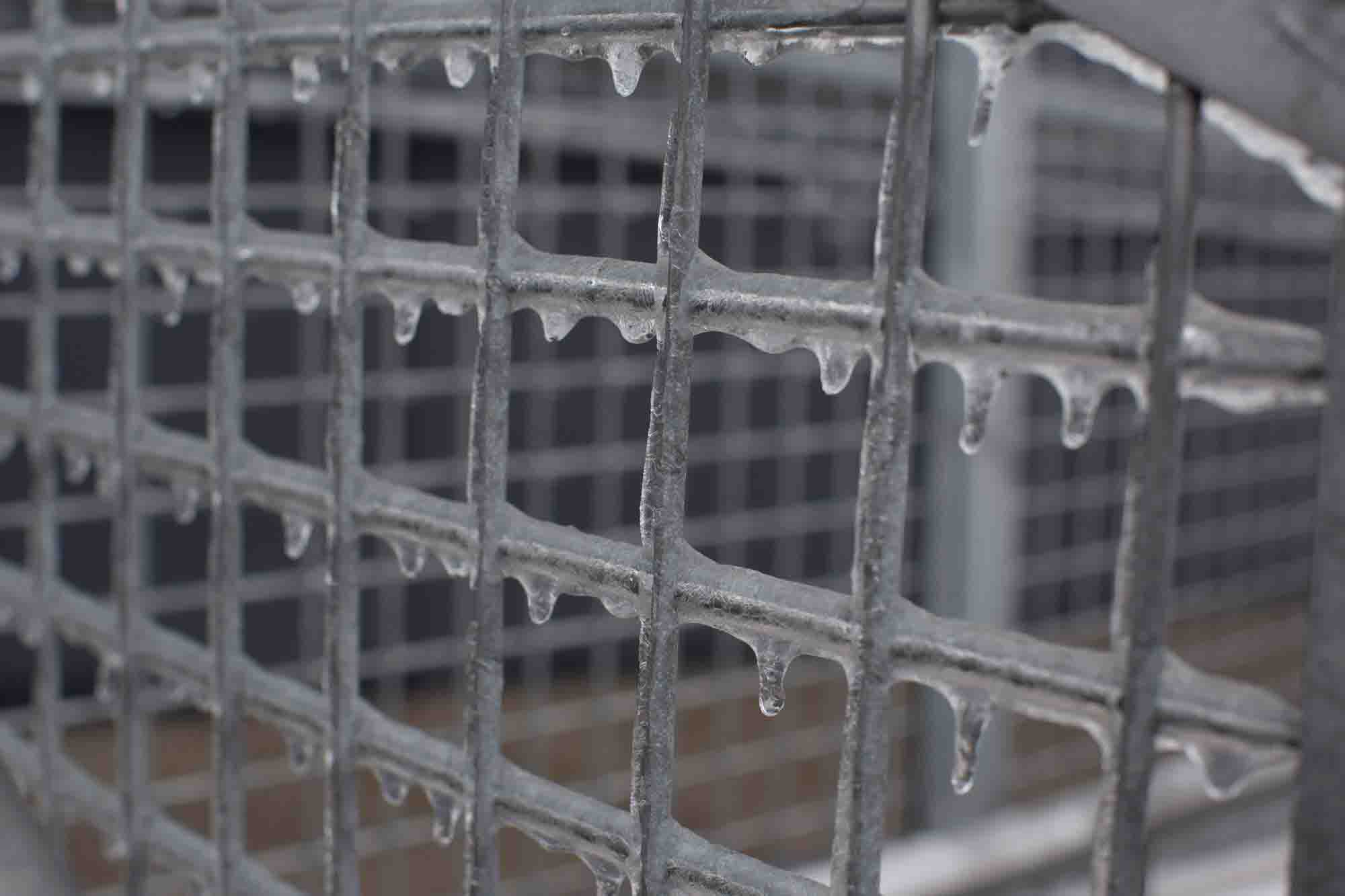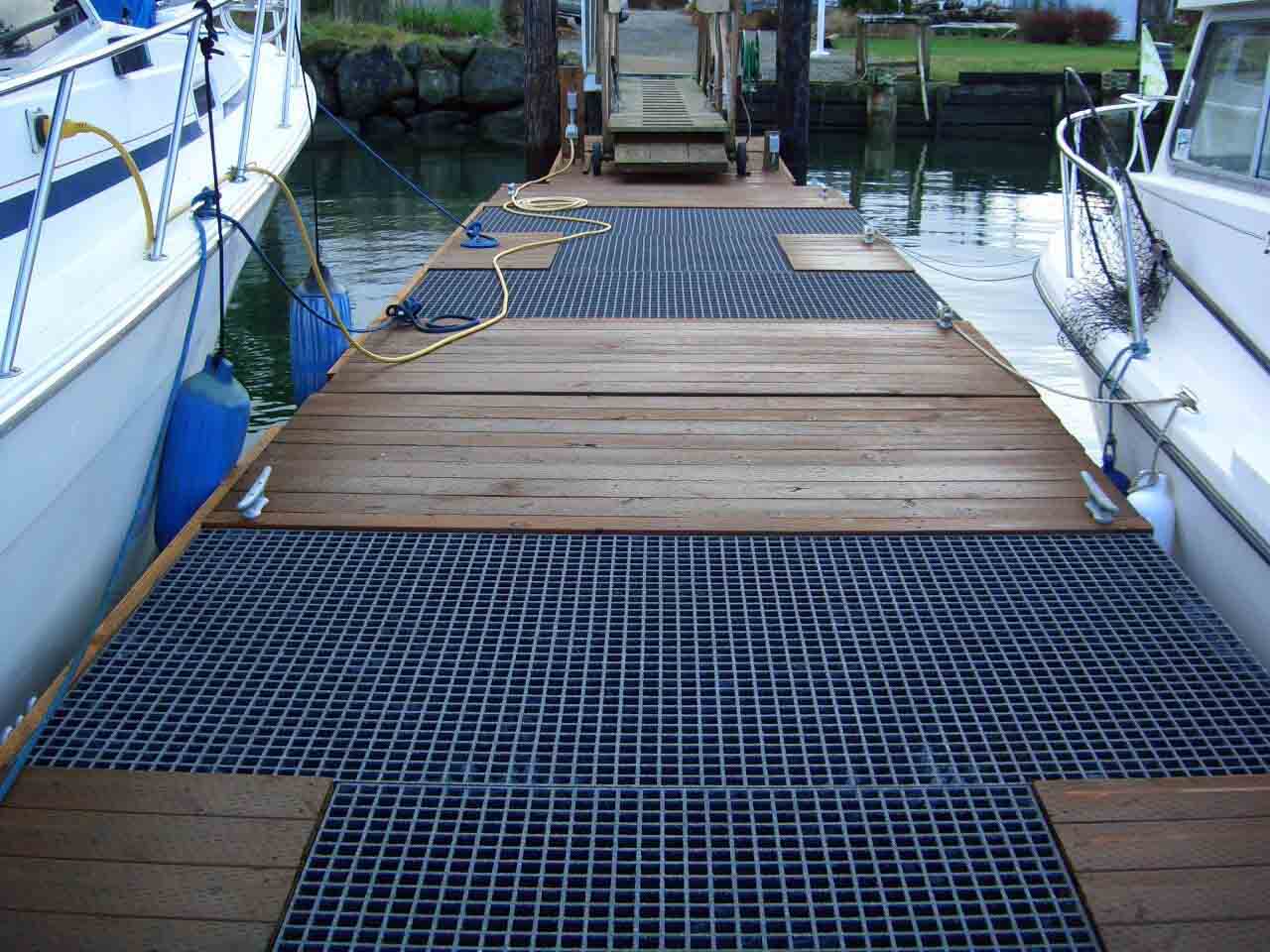Corrosion-Resistant Materials and Finishes
- September 21, 2020
- 10 min
Choosing What's Best
Around bodies of water, snow, salt and other corrosive elements, it’s critical to choose materials that will hold up to the environments around them. The right material or finish can save money, reduce maintenance efforts, and bring peace of mind with long-term durability and security.
From walkway Gratings to security Infill Panels, McNICHOLS provides Hole Products in a variety of corrosion-resistant materials. If you are looking to protect your project from the elements, check out the primary material options below!

Corrosion-Resistant Metals
For sheet and coil items like Perforated Metal and Wire Mesh to walkway products, including Bar Grating and Plank Grating, McNICHOLS offers several anti-corrosion metal materials and finishes.
Aluminum
Aluminum is a metal that naturally forms an oxide layer over its surface that is highly resistant to corrosion. With its high strength-to-weight ratio and economical characteristics, Aluminum is a common metal utilized in outdoor projects. To produce an Aluminum oxide coating which is uniform, much harder and denser than the material’s natural oxidation, anodizing the Aluminum can be a helpful finishing process. Unlike paint, which can flake off if not applied correctly, anodized Aluminum finishes are formed from the original material and cannot flake off. This film adds even greater fortitude against rust and is especially useful for exterior applications.
Stainless Steel
A Steel alloy containing Chromium and Nickel, Stainless is a popular choice for anti-corrosion requirements. Stainless Steel has two main varieties: Type 304 and 316. Stainless Steel Type 304 typically contains about 18% Chromium and 8% Nickel. On the other hand, Type 316 has around 16% Chromium and 10% Nickel, as well as 2% Molybdenum. The increased Nickel and added Molybdenum allow Stainless Steel Type 316 to demonstrate higher durability against elements, especially Chlorides found in seawater, pool water and de-icing salts. It should be noted that Stainless Steel can become susceptible to corrosion if it is cross-contaminated with Carbon Steel. Therefore, it’s a good idea to keep Plain Steel far away from any Stainless Steel varieties.

Galvanized Steel
In the galvanization process, Carbon Steel is coated with a zinc solution, a relatively low-cost finish that protects against atmospheric corrosion. The Steel may be pre-galvanized, or the zinc coating may be applied after the metal has been manufactured into its final assembly. Two common methods of galvanizing are hot-dipped and electroplated. With hot-dipped galvanized items, the Steel is dipped into a bath of melted zinc that coats the material. With electroplating, also called electro-galvanizing, Steel is immersed in a zinc solution that has a current of electricity running through it that helps the finish to bond to the metal. Both of these methods result in a galvanized coating that protects the Steel against rust and erosion.
Powder Coating
Metals can also be finished in a process called powder coating, which adds color to the material as well as corrosion resistance. Powder coating is a dry finishing method that involves spraying electrically charged particles of pigmented paint or resin onto metal. The electrical grounding of the coated metal causes the charged powder to adhere to the product surface. The item is then heated in a curing oven, allowing the powder to melt and fuse to form a continuous, uniform coating that is highly resistant to corrosion, abrasion and cracking. Powder coating can be applied to Plain Steel, as well as any of the metals listed above. Park benches, picnic tables and playgrounds are common Hole Product applications that utilize Powder Coating. This method resists rust while adding appealing color and a nice finished texture.

Corrosion-Resistant Fiberglass and Plastic
McNICHOLS is more than just metal—we also provide alternative anti-corrosive materials for several of our product lines.

Fiberglass Grating & Flooring
Fiberglass, or Fiberglass Reinforced Plastic (FRP), is a corrosion-resistant product line ideal for outdoor or severe environments. McNICHOLS carries several Fiberglass product lines, including Molded and Pultruded Grating, Stair Treads, Decking and Flooring and other accessories. Fiberglass is an ideal material to use around water because of its noncorrosive properties and its slip-resistant surface. Beyond water, Fiberglass exhibits durability against many other elements like harsh chemicals and heat. We invite you to browse our resin chart to learn more about what Fiberglass item is the best fit for each application.
PLASTIPERF™
McNICHOLS PLASTIPERF™ is made from Polypropylene Plastic that excels in damp or corrosive environments. This product often serves in signage, filters, baskets, strainers, screens, ceiling tiles, insulation parts and sunshades. One common application is in fish hatcheries, due to its water-resistant characteristics.
We’re Here to Help
Depending on the product line, certain corrosion-resistant materials may be more ideal than others. For example, woven Wire Mesh is not typically hot-dipped galvanized or powder coated because it is difficult to ensure complete coverage. If you would like more specific guidance about which material is the right fit for your needs, we invite you to contact one of our Customer Service Specialists. Our knowledgeable team is ready and eager to assist you at 855.318.8791, [email protected], or via Live Chat on mcnichols.com.







